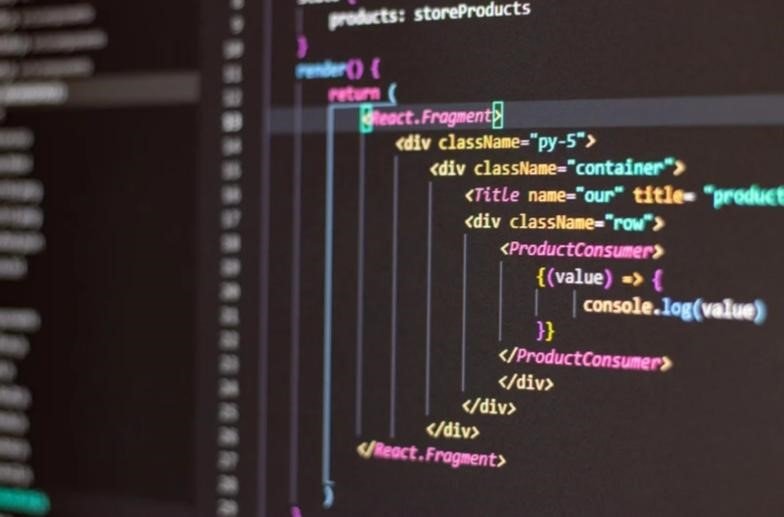Forensic Accounting
- By
- January 01, 1970
- Accounts and finance
All you need to know about Forensic Accounting
If you pick a newspaper, you are most likely to come across a financial scam. Financial scams and frauds have become routine activities now. In a world that is becoming more advanced technically, criminals have discovered new ways of duping people. This necessitates the demand for forensic accountants who have excellent auditing and investigative skills to determine the nature and causes or financial crimes.
Understanding Forensic Accounting
Forensic Accounting is an area of practice under accounting that investigates into the matters of financial misconduct of individual and businesses. The analysis that is drawn out of such accounting is used to explain the nature of financial crimes like fraud and embezzlement. Forensic Accounting has gained recognition in the past decades due to an upsurge in the financial crimes.
•Forensic Accounting is a mixture of investigative and accounting skills used to discover financial fraud and misconduct. •One of the pivotal roles played by a forensic accountant is to explain the nature of the financial crime to the court or law. •Forensic accountants employ various methods such as tracing funds, asset identification and recovery to make financial analysis. |
•Forensic Accounting in Litigation: You might be aware of the phrase “forensic evidence” used in a court of law. It means evidence that is to be produced before the court. Forensic Accounting plays a key role in litigation in matters related to quantification of damages. It involves preparing a financial analysis to be presented before the court to support a case. In order to resolve financial disputes through court decisions and settlements, a financial accountant is made an expert witness.
•Forensic Accounting in Criminal Investigation: Forensic Accounting is used to find whether a crime occurred and if so, to unravel the criminal intent behind such crimes. Identity theft, employee theft, securities fraud, insurance fraud are the examples of such crimes.
•Forensic Accounting in Insurance Industry: Forensic Accountants are often used in the insurance industry to quantify the economic damages resulting out of a motor accident, in cases of medical malpractice or some similar claim.
History of Forensic Accounting
The birth of Forensic Accounting is credited to Frank Wilson who served as a CPA for the Internal Revenue Service. He was assigned the task of investigating the suspicious dealings of Al Capone who was one of America’s most infamous gangsters. He failed to claim his earnings on his taxes. He amassed his wealth through illegal activities like gambling, prostitution, embezzlement etc. Due to the concerted efforts of Wilson, Capone was indicted for tax evasion. Subsequently he was convicted and sentenced to ten years of imprisonment. This event paved the way for Forensic Accounting to be recognized.
The first ever case in which a forensic accountant was used as an expert witness in a court of law was Meyer v. Sefton in 1817. However, the term “forensic accounting” was coined in the year 1946 when it was first published in an article called “Forensic Accounting—It’s place in today’s economy” written by Maurice E. Peloubet.
Role of a Forensic Accountant
A Forensic Accountant is a Certified Forensic Accountant (CRFAC) who uses his investigative and analytical skills to unravel financial crimes. Forensic Accountants are employed by big corporations, accounting firms, insurance agencies, banks, government agencies, police forces to keep a check upon financial misconduct. The roles and duties of Forensic Accountants have evolved over time. Due to advancements in technology, corporate scams have registered an upsurge due to which the need of having a forensic accountant has increased. They play a pivotal role in various kinds of investigations like—
•Financial Fraud •Health Care Fraud
•Embezzlement •Mortgage Fraud
•Money Laundering •Insurance Fraud
•Tax Evasion •Securities & Commodities Fraud
•Ponzi Schemes •Corporate Valuation Disputes
•Terror Funding •M&A Related Disputes
The financial evidence compiled by financial accountants is produced before the court of law. At times, they are also called upon to testify in the court. They employ methods like tracing of funds, asset identification and recovery to solve financial crimes. The collected evidence is beneficial for businesses in trials of financial cases.
•Besides acting as experts in financial crimes, they produce the profit and loss reports of companies and corporations in order to assess how much loss or profit the company has borne.
•Contracts are a part of routine business activity. Forensic accountants also investigate matters related to the breach of contract between parties.
•Forensic accountants also work upon patent and copyright violation reports. They aid and advise the companies in matters of copyright and patent.
•Other types of reports that forensic accountants work upon include fraud investigation report, professional malpractice report, dimunition report, wrongful termination report etc.
Challenges faced by Forensic Accountants
•Forensic Accounting demands a lot of financial and technical expertise.
•Depending on the case and it’s duration, forensic accounting can be a very expensive process.
•During the course of investigation, confidential and sensitive details of the suspect can be leaked which can harm his reputation.
Forensic Accounting Procedure
A procedure applied in Forensic Accounting differs from an ordinary statement audit. Following steps are involved in a forensic research—
•Investigation: Forensic Accountants start inquiring about the matter when they sense suspicion. They start with the collection of evidence related to the fraud. They gain more information by inquiring the staff of the organization. Using the collected information, they connect the dots and form a hypothesis. Once the Investigation reaches its finality, the Forensic Accountant gives this information to the company.
•Reporting: Forensic Accountants prepare a summary out of the collected evidence and hand it over to the concerned personnel. They aid and advise the company on how to proceed with the case and what steps need to be taken. After the submission of the report, they prepare for their case proceedings in the court.
•Litigation: This is the final and the most important step of the whole process wherein the Forensic Accountant participates as an expert witness in the court proceedings. He presents his materials on record and testifies against the offenders. Once the proceedings conclude, the court gives its final verdict.
Forensic Accounting as a career
A Forensic Accountant is yet another type of accountant whose job is to provide expert opinions in matters related to financial fraud and misconduct. Their investigative and analytical skills give valuable insights in the investigation of financial frauds. If the field of Forensic Accounting excites you and you want to make a career in it. You need to about the requisites related to the field such as educational qualifications, skills etc.
Educational Qualifications: You need to have a bachelor’s degree in forensic accounting, finance or accounting. A person can also qualify to become a Forensic Accountant if he possesses a degree in criminal justice. In addition to on-the-job training, this profession demands 1-3 years of experience in general accounting. In order to become a Forensic Accountant, one must have adequate knowledge of accounting and possess good investigative skills.
Certifications: The job related to forensic accounting requires a certified public accountant license to practise. One can get the license by passing the Certified Fraud Examiner (CFE) exam. Once qualified, the individual can participate in various networking events. Another credential that accountants can earn is Certified in Financial Forensics (CFF) credential. It can be achieved by passing the CFF exam and devoting 5,000 hours to the field.
By pursuing a degree in forensic accounting, you can consider building your expertise in the following areas—
•Fraud and criminal investigation •Bankruptcy and Insolvency
•Matrimony disputes •Business audits
•Insurance claims •Injury claims
Skills required to be a Forensic Accountant
•Critical Thinking: Since conducting an investigation requires great observation and patience, critical thinking is one of the pre-requisite skills when it comes to the field of forensic accounting. A forensic accountant must know to critically analyze all the facts and evidence to decode financial crimes. Critical thinking also helps to figure out anomalies and discrepancies related to the investigation process.
•Analytical Skills: Analytical skills are required to review documents that are related to the investigation process. Forensic accountants must know to analyze the information inorder to create their financial analysis related to financial crimes. Analytical skills are also required while interviewing people about the crime.
•Communication Skills: The role of a forensic accountant is to make financial reports related to financial crimes. He is also required to testify before the court and explain complex financial information to the court. He must have strong written and verbal skills to pursue these objectives.
•Problem-solving skills: It is one of the most important skills that is central to the profession of forensic accounting. An investigation process goes through various twists and turns with the addition of new information. Forensic accountants must have the skill ot evaluating such scenarios using their problem-solving skills.











